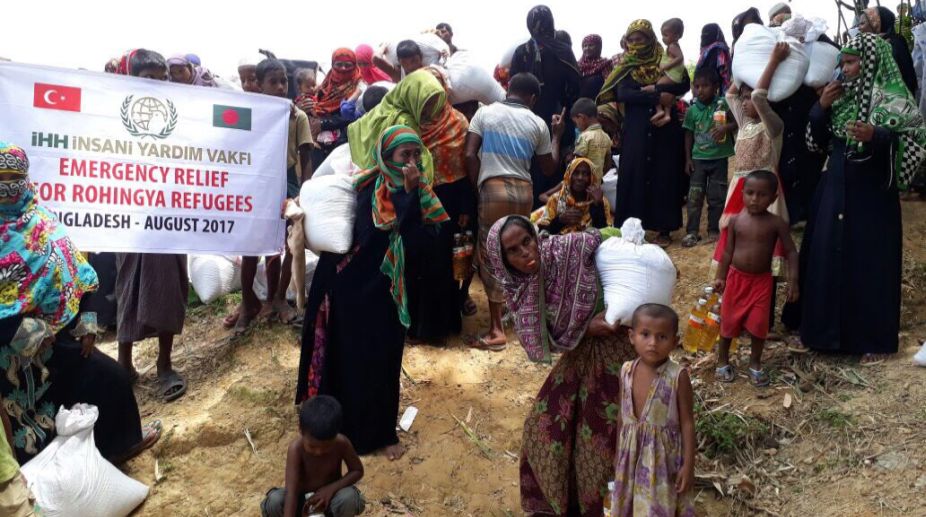At polarised UNSC meet on Iran attack, only consensus is Middle East tensions shouldn’t escalate
The Council immobilised by its divisions did not take any action and the meeting was only an occasion for venting.
Myanmar’s Aung San Suu Kyi received a UN Security Council delegation in the highest-level diplomatic visit since the start of the Rohingya crisis

Represenational Image (Photo: Twitter)
The United Nations Security Council visited Myanmar and Bangladesh over the past few days to assess the Rohingya situation.
Myanmar’s Aung San Suu Kyi received a UN Security Council delegation yesterday in the highest-level diplomatic visit since the start of the Rohingya crisis, which will include a brief tour of violence-hit Rakhine State.
Suu Kyi, the de facto leader of mainly Buddhist Myanmar, has been pilloried overseas for her failure to speak up for the Rohingyas or publicly condemn the army for driving them out of the country.
Advertisement
The UN delegates will travel by helicopter today over the scarred landscape of northern Rakhine state, the scene of an army campaign starting last August that drove around 700,000 of the minority into neighbouring Bangladesh.
Their visit to Myanmar comes after an emotionally-charged stay in Bangladesh where Rohingya refugees told delegates of their trauma, rape, killing and burning of houses in Rakhine where they have been denied citizenship and other basic rights including healthcare since 1982.
Earlier, Bangladesh’s State Minister for Foreign Affairs M Shahriar Alam told United Nations’ Security Council members that the Rohingya crisis is Myanmar’s internal problem imposed on Bangladesh.
Bangladesh is hosting hundreds of thousands of Rohingya Refugees that have fled ethnic violence and persecution in Myanmar.
Debriefing the 15-member UN Security Council delegation at Ukhia, Cox’s Bazar, after the council’s official visit to Rohingya camps, the junior minister said “the solution to this problem lies in Myanmar”.
“It is Myanmar’s internal conflict, forced on to the shoulder of Bangladesh. The problem has come from there and the solution lies there as well.”
Demands from the refugees and rights bodies are growing louder for referring Myanmar’s atrocities to the International Criminal Court as the Southeast Asian country’s security forces are accused of genocide and ethnic cleansing against the minority group.
Calls for Foreign Assistance
Prime Minister Sheikh Hasinaon Monday said Bangladesh expects China, Russia, India and Japan to play a major role in resolving the Rohingya crisis.
The UNSC has so far failed to take concrete actions against Myanmar mostly because of oppositions from China and Russia.
As the delegation left Dhaka yesterday after a two-day visit, they said they would press Myanmar to ensure the safe return of those who fled into Bangladesh.
However, deputy Russian ambassador Dmitry Polyanskiy, whose country has supported Myanmar, warned on Sunday that the council did not have a “magic stick” solution.
“We are not looking away from this crisis, we are not closing our eyes,” he said.
They also focused on implementation of the bilateral deal signed by Myanmar and Bangladesh in November. No refugees have returned so far.
The UN Refugee Agency negotiated for a tripartite agreement on repatriation, but Myanmar so far refused it. Recently, Bangladesh signed a deal with UNHCR on safe and voluntary repatriation of the Rohingya. Myanmar is supposed to sign a deal, but that has not been done yet.
Myanmar’s military has kept Rakhine in a lockdown since August, blocking access to independent observers, journalists and many aid groups except on tightly-controlled chaperoned trips.
Rights groups say freedom of movement of the Rohingyas and their access to the marketplaces in Rakhine is limited.
Advertisement